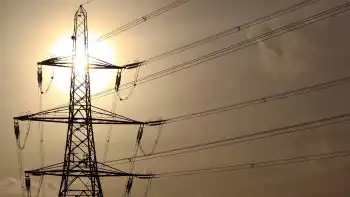French utility to buy British Energy
By Reuters
CSA Z463 Electrical Maintenance
Our customized live online or in‑person group training can be delivered to your staff at your location.

- Live Online
- 6 hours Instructor-led
- Group Training Available
E.D.F. raised its offer to 774 pence a share, according to a statement, from an initial 764 pence that was tendered in July for the utility. That appeared to be enough to bring on board two large British Energy shareholders, the fund managers Invesco and M&G, who had previously opposed the deal.
The French utility, the biggest nuclear power producer in the world and one of the largest power providers, will gain control of eight British nuclear plant sites with potential for building new reactors. High energy prices and concerns about global warming are making nuclear power more attractive. France already generates most of its electricity from nuclear power.
The British government, which owns a nearly 36 percent stake in British Energy, is hoping to rejuvenate its aging nuclear operations to meet electricity needs in coming decades.
The move also solidifies the trend in recent years of British power supply being controlled by foreign companies. RWE, the Germany utility, owns npower, a major supplier, while Scottish Power is owned by the Spanish group Iberdrola.
Still, the deal is not likely to be welcomed universally. Customers in Britain have been hit harder by energy price rises than those in France and most other European countries in recent months, bringing complaints that British households are subsidizing their counterparts on the continent.
The deal must be approved by shareholders and regulators in Britain and Brussels, although analysts said it was unlikely that it would be blocked.
In the statement, E.D.F. said it was also in discussion for Centrica, the owner of British Gas, to take a 25 percent stake in the new combined entity and to include Centrica in projects to build new power stations.
E.D.F., based in Paris, operates 58 nuclear plants in France and is eager to expand abroad. Just recently, it confirmed an 11-billion euro bid, in a joint venture with two private equity groups, for Constellation Energy of the United States.
Germany has pledged to phase out nuclear power, and production in other European countries is relatively patchy so Britain presented an opportunity.
Even before the deal, E.D.F. already generated around 6 percent of BritainÂ’s power, employing nearly 12,000 people in the country.
Through the deal, E.D.F. will benefit by acquiring immediate access to land in Britain where it could expand existing nuclear facilities.
The governmentÂ’s British Energy stake, worth around $8 billion, is earmarked for the governmentÂ’s Nuclear Liability Fund, which was created to pay for the decommissioning and cleaning up of British EnergyÂ’s eight current nuclear stations when closures of the sites begins in 2014.
The British government acquired its stake as part of a restructuring of the company five years ago. It originally took a stake of about 65 percent, but sold a little less than half of its holding a year ago, raising about $5 billion for the Nuclear Liability Fund.
Speaking before the deal, Matthias Heck, a utility analyst at Sal. Oppenheim Jr. in Frankfurt said a combination would have a “a strong strategic rationale.”
Still, some analysts expressed concerns about implications of the deal for E.D.F.Â’s credit rating, particularly in the light of the bid for Constellation.
Adrian Montague, chairman of British Energy, said the deal would allow the combined group to develop fully British Energy’s role in new nuclear construction and “improve British Energy’s financial strength and in so doing help create a secure, long-term future for our business and our staff.”
He said it would open new markets “prolong the contribution” of existing power stations and presented “good value and an opportunity” for shareholders.
“There is a great fit between our two companies,” said Pierre Gadonneix, chairman and chief executive of E.D.F. “This is an historic milestone in our strategic development plans in Europe and enables the E.D.F. Group to develop significantly in the U.K., one of its key markets.”











